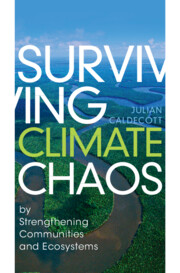Despite coastal regions’ importance and vulnerability to climate change, Ghana’s coasts remain underexplored through social-ecological systems (SES) approaches, with limited attention to Indigenous and local communities’ adaptive responses to contemporary challenges. We conducted a study with the aims of (1) identifying the changes in coastal SES as perceived by the Akplabanya community and (2) examining the Akplabanya community’s human adaptation responses to those changes. During two months of fieldwork in Akplabanya, we used four data collection methods: participant observation, semi-structured interviews, key informant interviews, and focus group discussions. We found social-ecological changes related to five themes: (i) coastal climate change (sea-level rise), (ii) resource change (changes in land use), (iii) agrobiodiversity loss (changes in livestock), (iv) pollution (unsustainable practices) and (v) population change (increasing population). As adaptation responses to these changes, the community adaptive responses we found were (a) place (sense of place), (b) agency (emergence of food markets), (c) Indigenous and local knowledge (weakening of Indigenous knowledge), (d) collective action (collective solutions), (e) institutions (partnerships) and (f) learning (awareness). Our study highlights the urgent need for targeted research in regions like Ghana to guide and improve adaptation policy interventions for scientists, policymakers and researchers.

